Displaying 451-460 of 893 results

Nature-Based Solutions For Water – The United Nations World Water Development Report 2018
More than 2 billion people lack access to safe drinking water and more than double that number lack access to safe sanitation. With a rapidly growing global population, demand for water is expected to increase by nearly one-third by 2050. In the face of accelerated consumption, increasing environmental degradation and the multi-faceted impacts of climate change, we clearly need new ways to manage competing demands on our precious freshwater resources. The 2018 edition of the UN World Water Development Report (WWDR2018) suggests that solutions may be closer than we think. The WWDR2018 illustrates that working with nature, rather than against it, would enhance natural capital and support a resource-efficient and competitive circular economy. NBS can be cost-effective, and simultaneously provide environmental, social and economic benefits. These interwoven benefits, which are the essence of sustainable development, are central to achieving Agenda 2030.
 5
5


 Report issue
Report issue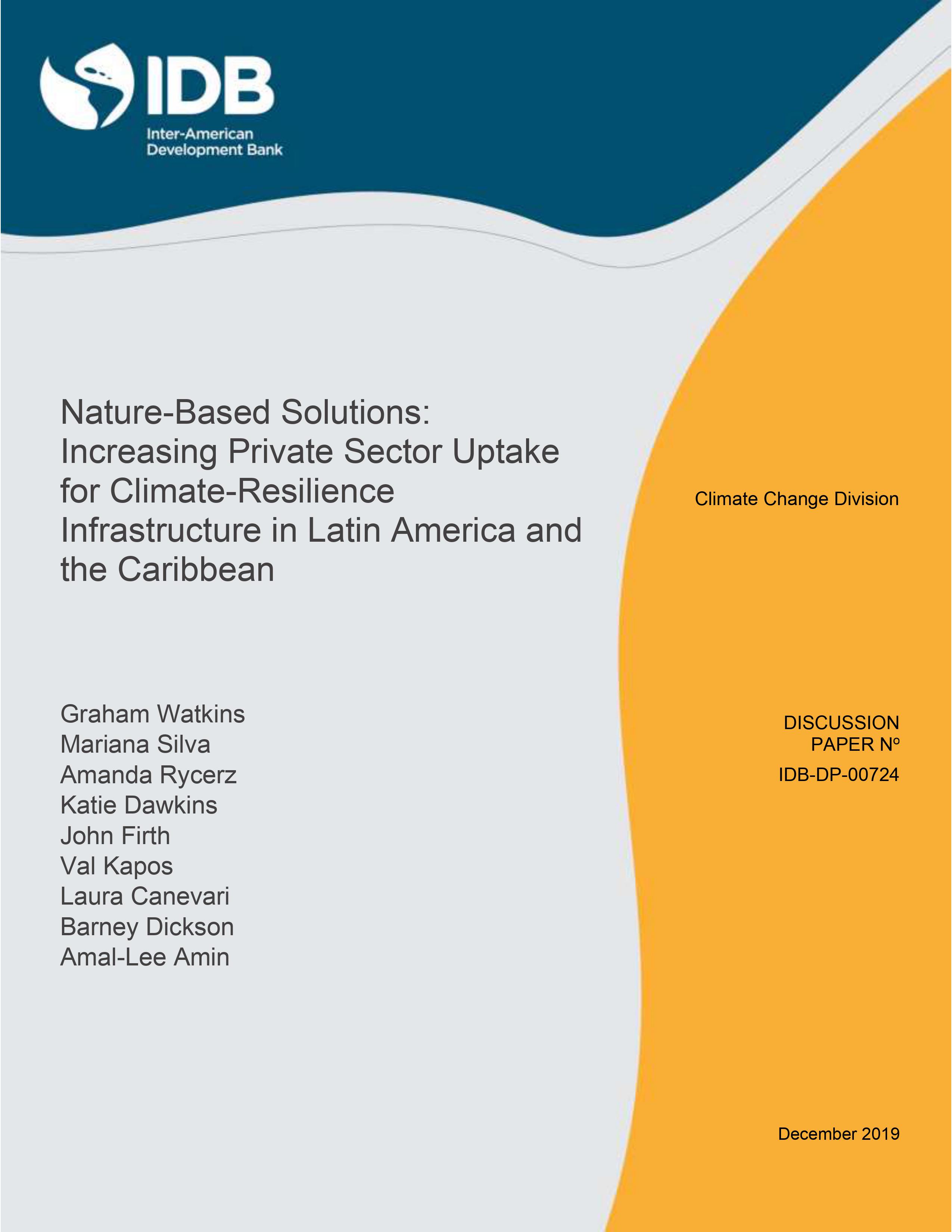
Nature-Based Solutions: Increasing Private Sector Uptake for Climate-Resilience Infrastructure in Latin America and the Caribbean
Nature-based Solutions (NbS) can be used as a cost effective way to build infrastructure resilience in response to a changing climate, while also delivering a range of other societal benefits. Yet, many business aren’t aware of these benefits, and implementation of NbS by the private sector (including businesses that plan, design, construct and fund infrastructure) has been limited in Latin American and the Caribbean (LAC). As a region where infrastructure investments are required due to economic and population growth, and where climate impacts are acute, LAC is an ideal setting for multifunctional solutions like NbS to help build climate-resilient infrastructure. Through a collaborative project, the Inter-American Development Bank (IDB), UN Environment Programme (UNEP), Acclimatise, and the UN Environment Programme World Conservation Monitoring Centre (UNEP-WCMC) are exploring the barriers to, and opportunities for, increasing private-sector uptake of NbS in the infrastructure sector in LAC. This document outlines emerging findings from the work and provides initial recommendations for infrastructure project developers, financial institutions, and policy makers, to create a more enabling environment for NbS.
 5
5


 Report issue
Report issue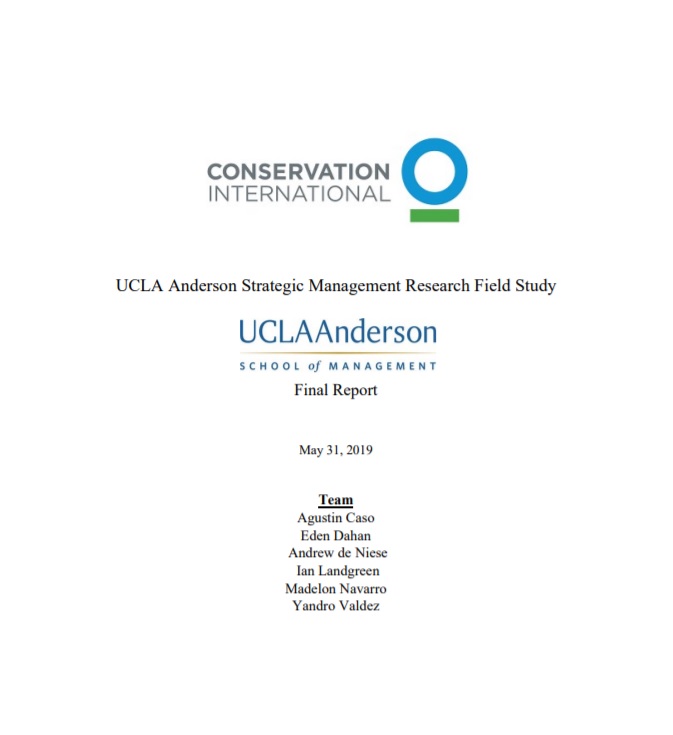
NBS Financing Mechanisms for Mangrove Conservation
This report provides a strategic assessment of financing mechanisms potentially available to a Conservation International (“CI”) project to protect mangroves in the North Brazilian Shelf Large Marine Ecosystem (“NBS-LME"). While the protection and sustainable management of mangroves provides co-benefits for various stakeholders throughout the NBS-LME and across the planet by providing a range of ecosystem services (e.g., carbon sequestration combating global climate change), CI’s initial focus for the project is identifying a financial strategy for the conservation and restoration of mangroves to improve coastal resilience in Guyana and Suriname through the development of symbiotic green-grey infrastructure.
 8
8


 Report issue
Report issue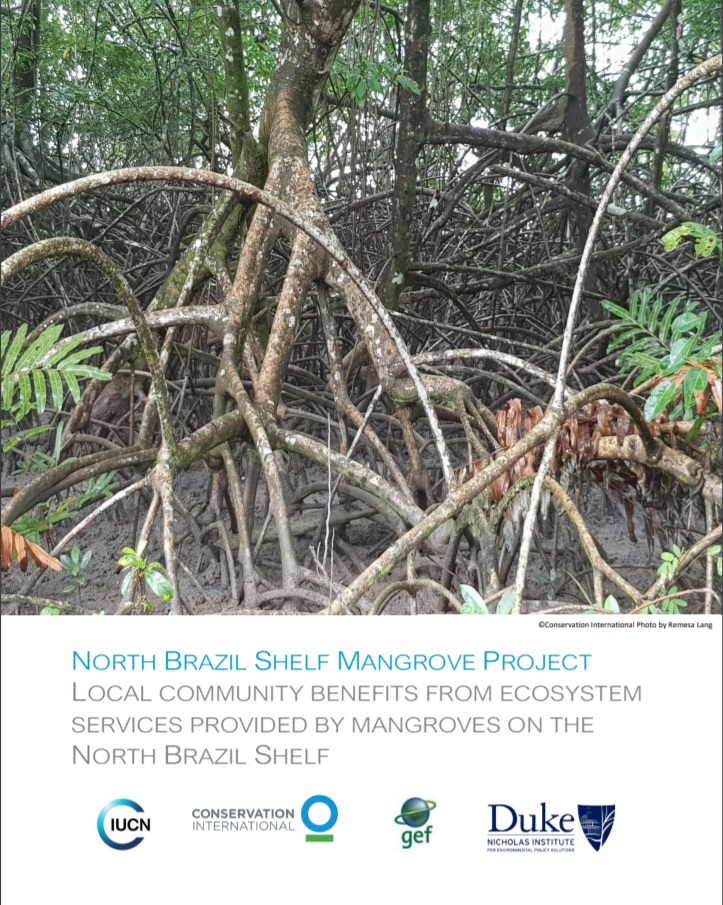
NBS Local Community Benefits from ecosystem services provided by mangroves on the North Brazil Shelf
This analysis seeks to evaluate the size and distribution of the services the mangrove ecosystem is providing to local communities in Suriname and Guyana. The study involves three components: (i) the description, from the scientific and grey literatures, of the mangrove ecosystem services specific to local communities in Guyana and Suriname; (ii) identification of methods that could be used to estimate the economic values of these services, and estimation of the economic values for mangrove forests’ fisheries support ecosystem service; and (iii) identification of local beneficiaries of these services.
 24
24


 Report issue
Report issue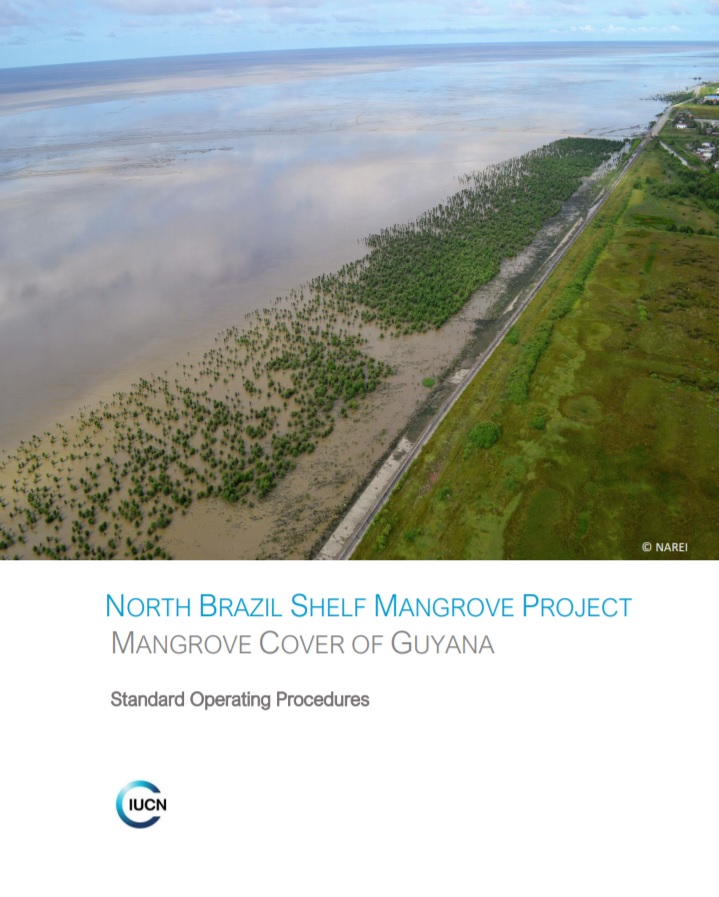
NBS Mangrove Cover of Guyana, Standard Operating Procedures
This report provides more information regarding the standard operating procedures used to developed the Implementation Report for the NBS Mangrove Project Cover Analysis of Guyana in order to produce the Mangrove Cover Extent Map. Earth and Marine Environmental Consultants (EAME) was commissioned to undertake Mangrove Cover analysis across Guyana’s coastline on behalf of the North Brazil Shelf Mangrove Project.
 6
6


 Report issue
Report issue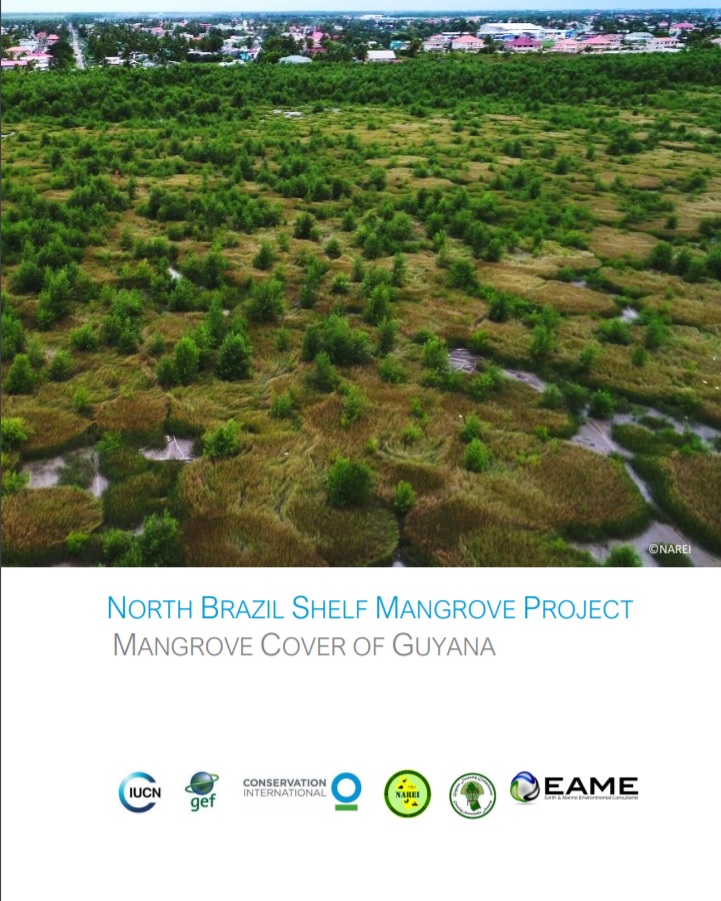
NBS Mangrove Project Cover Analysis of Guyana
This report is the Implementation Report providing supporting discussion for the data acquisition and processing utilized in order to produce the Mangrove Cover Extent Map. The objectives of the work were as follows: ▪ Production of an up-to-date Mangrove Cover and Extent map utilising the most recently available spatial data along Guyana’s Coastline; ▪ Preparation and delivery of a mangrove monitoring operating procedure to monitor the change in mangrove forest cover extent; and ▪ Creation of relevant knowledge transfer training documents and resources to be used within training exercises/ workshops.
 5
5


 Report issue
Report issue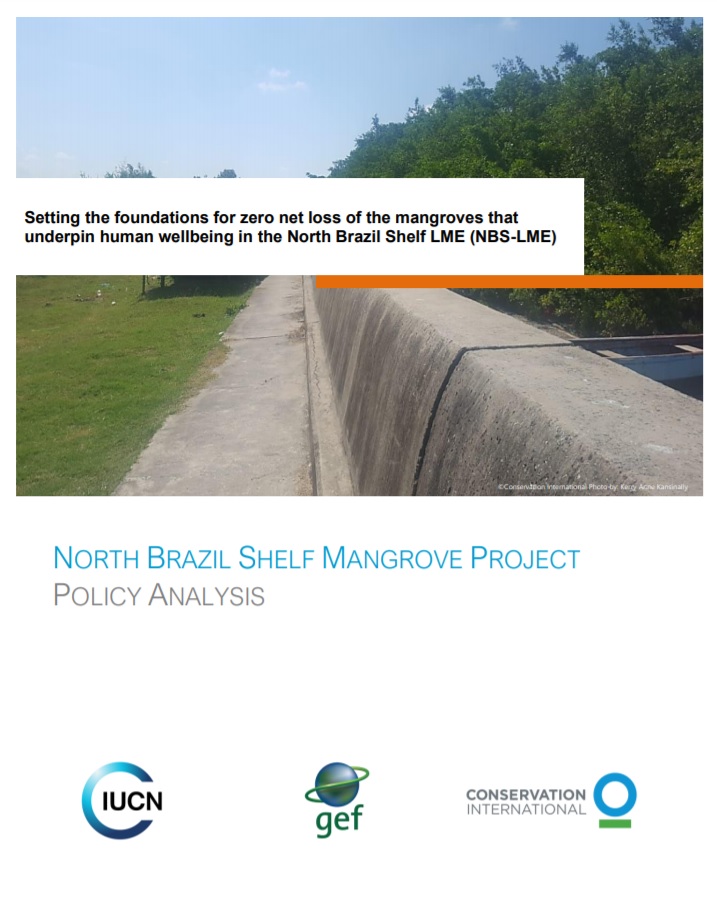
NBS Mangrove Project Policy Analysis
The Policy Analysis was aimed at providing a comprehensive understanding of the existing public policy tools, institutions, relationships, and legal instruments that support the conservation of mangroves, particularly in Guyana. It was intended to assist in addressing legislative and policy issues relevant to the sustainability of mangroves and ecosystem services associated with "blue forests", support the development of concrete and concerted actions to strengthen mangrove governance mechanisms, and promote the healthy state of mangroves to secure the benefits they provide to Guyana and the wider society of the NBS-LME.
 6
6


 Report issue
Report issue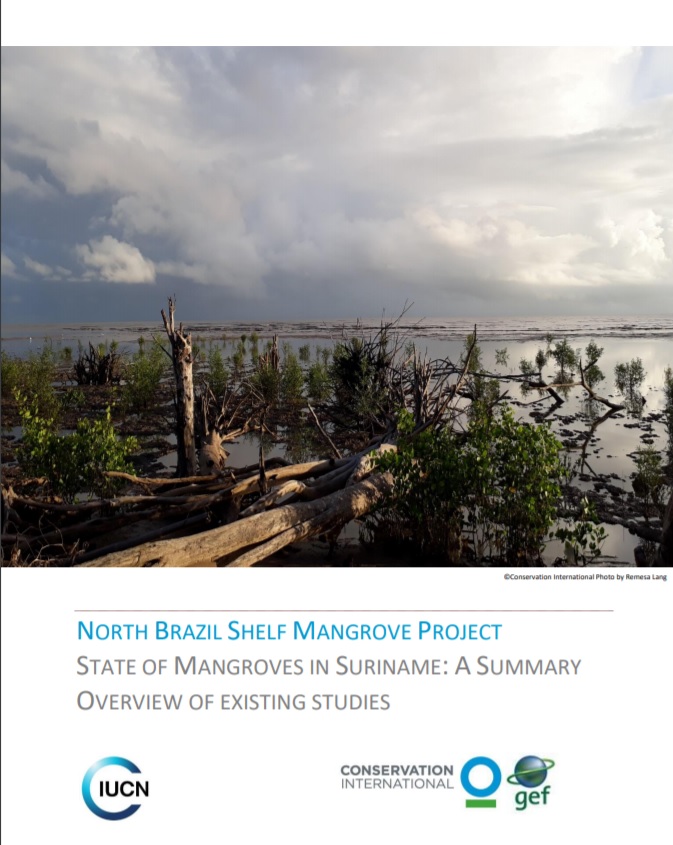
NBS Mangrove Project State of Mangroves in Suriname: A Summary Overview of Existing Studies
The Project Setting the foundations for zero net loss of the mangroves that underpin human wellbeing in the North Brazil Shelf LME aims to establish a multi-sectoral consensus and knowledge foundation for the development of an Integrated Coastal Management (ICM) Plan for Mangroves, and to create the multi-disciplinary information base, regional coordination mechanism and multi-sectoral consensus required to implement elements of the CLME+ Strategic Action Plan pertaining to the mangroves that most directly underpin human wellbeing in the North Brazil Shelf LME. To accomplish this, the project will be filling critical knowledge gabs pertaining to mangroves and coastal management. This report is one of the first outputs of the project, which gives a summary overview on the state of mangroves in Suriname.
 10
10


 Report issue
Report issue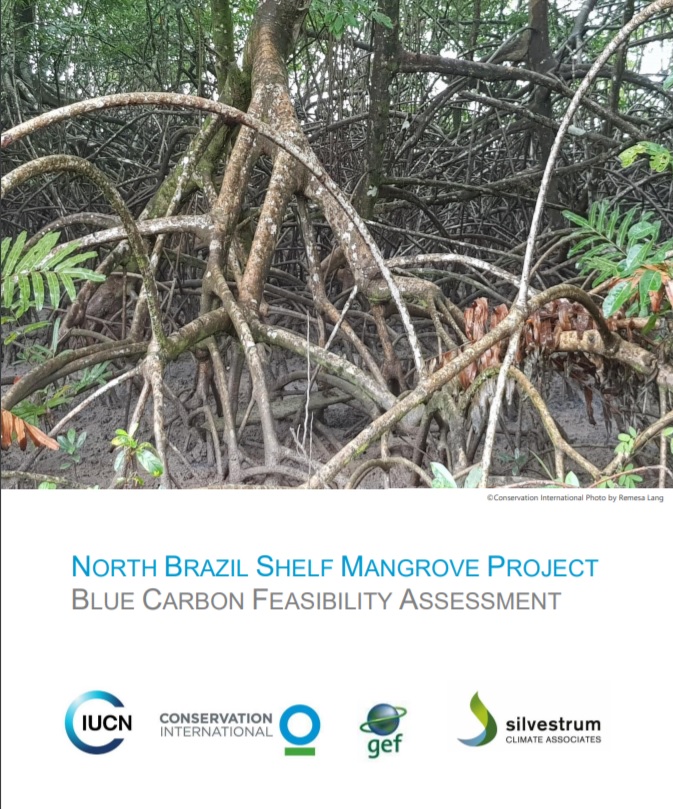
NBS Mangrove Project: Blue Carbon Feasibility Assessment
This report evaluates the potential of Guyana and Suriname’s mangrove ecosystems to contribute to climate change mitigation by exploiting their ability to sequester carbon and their role as important national carbon sinks. It also provides a review of NBS mangrove ecological structure, function, and key environmental factors regarding carbon sequestration and storage potential; dimensioning NBS mangrove potential as carbon sinks and mangrove carbon value.
 6
6


 Report issue
Report issue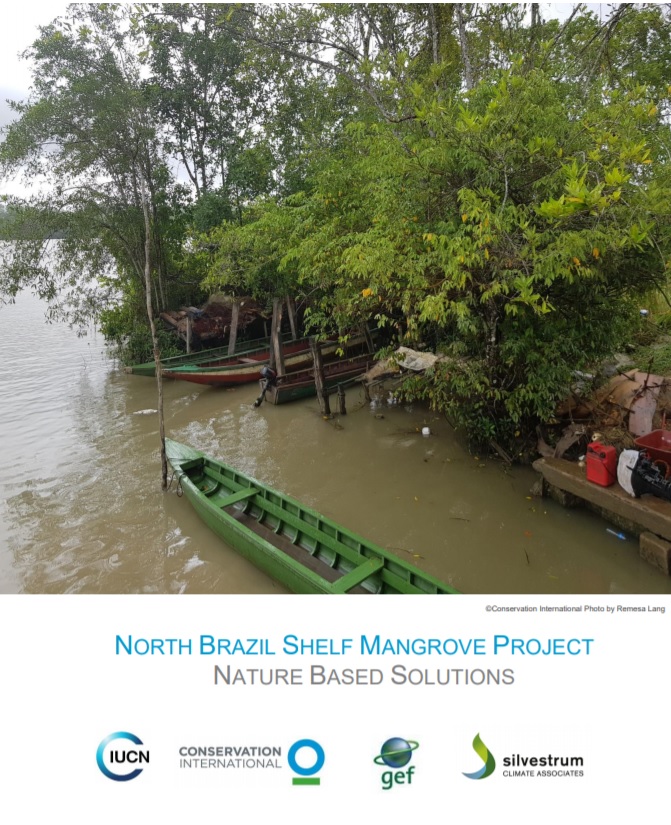
NBS Mangrove Project: Nature Based Solutions
Natural ecosystems provide a host of benefits to local communities and national economies, and if managed correctly, they can also provide coastal flood protection from damaging surge and wave hazards. This report builds the knowledge base to support successful implementation of nature-based solutions in the NBS-LME region within a regional framework. Key topics presented in this report include: An overview of the sea level rise scenarios to be considered; an account and quantification of the influence of geomorphology and mangrove species composition in reducing storm surge and stabilizing sediment; and a review of known environmental and anthropogenic factors that influence mangrove condition and associated flood risk. Also, an overview of a Coastal Vulnerability and Adaptation Framework and Coastal Vulnerability Consequence Index to identify local-and regional-scale vulnerabilities to coastal hazards; quantification of geologic and coastal processes leading to coastal vulnerability; an overview of nature-based (green) and engineered (gray) solutions; an evaluation of costs and discussion of cost-benefits for implementing nature-based solutions; existing tools and models to support detailed coastal evaluations in support of nature-based shoreline solutions for coastal protection; and an identification of data gap and next steps to complete the Coastal Vulnerability and Adaptation Framework for the NBS-LME.
 8
8


 Report issue
Report issue

